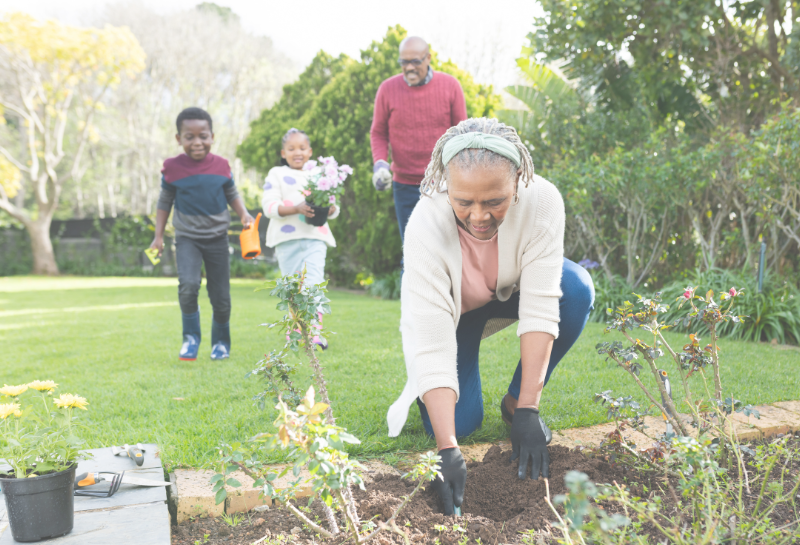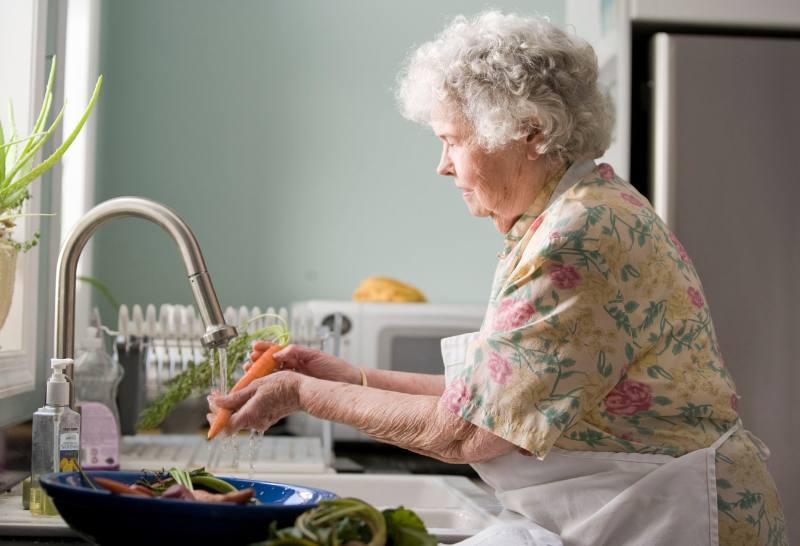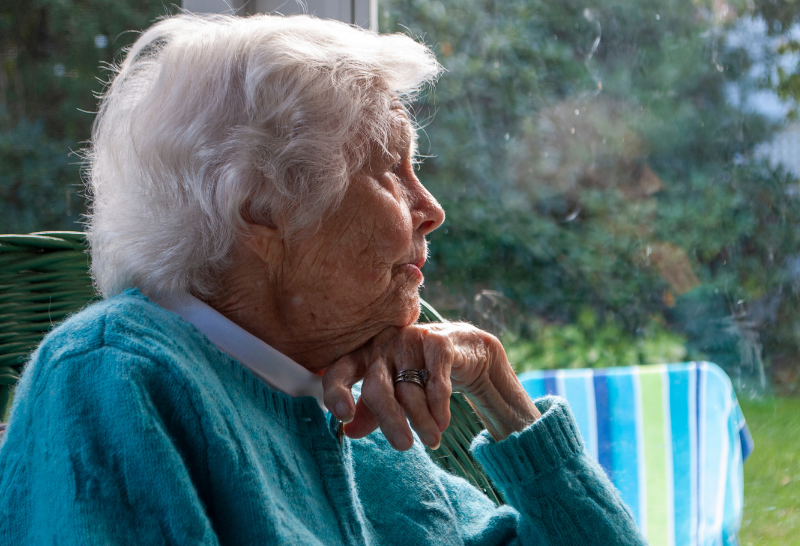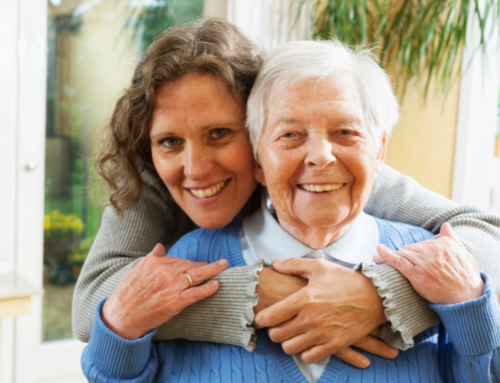Preparing to Spring into Action: Intergeneration Activities for Seniors and Youth
How can the energy of spring inspire new connections between our seniors and youth?
As buds become flowers, it brings a message of beginnings and renewal. This is an excellent time for seniors and youth to form connections and beginnings that bring generations together through spring activities and intergenerational programs.
According to Taylor & Francis Online —The Journal of Intergenerational Relationships —
- This review demonstrated how non-familial intergenerational programs involving adolescents and older adults benefited both. Benefits for older adults included improved well-being and cognitive and social engagement.
- The benefits for adolescents were identity formation and skill development. Shared outcomes for both generations were improved attitudes and stereotypes, reduced generational gap, and solidarity.
These connections are both joyful and gateways to shared learning and mutual enrichment.
The Harmony of Youth and Maturity
Intergenerational interactions aren’t just heartwarming. They’re mutually beneficial. They foster exchanges of wisdom, energy, and respect. These kinds of connections fortify the young with lessons of the past while giving seniors a refreshed perspective brought by the young.
Here’s how these cross-generational relationships create harmonious benefits for both seniors and youth, according to a CivicPlus:
When seniors spend time with young people, they benefit from:
- Improved communication
- Enhanced self-esteem
- Better decision-making skills
- Improved memory
- Feeling from making a difference with the next generation
- Feeling appreciated and valued
Children benefit as well when spending time with seniors:
- Improved academic achievement through senior mentoring
- Feeling loved and enjoying dedicated attention
- Gaining confidence through non-judgmental companionship
- Emotional bonding
- Being exposed to the knowledge and demeanor of older adults, particularly if they do not have grandparents engaged in their daily lives
Seniors and children find their worlds enriched when they come together. Seniors report feeling more connected and mentally stimulated through interactions with the younger generation.
These relationships are equally stimulating for young people, offering mentorship, emotional support, and the unique wisdom that only seniors can impart.
Cultivating Connections: Intergenerational Activities To Consider
Intergenerational activities support nurturing relationships across different age groups, each bringing a unique perspective and set of experiences.
By engaging in shared activities, seniors living at home and young people can create bonds that are as educational as joyful.
Aging-in-place organizations play a crucial role in facilitating these connections, offering various programs that cater to the interests and abilities of all participants. Aging-in-place organizations provide the resources and opportunities for meaningful interactions that can enrich lives in many ways.
Cornell University gerontologist Karl Pillemer surveyed 2,000 people over 65 to ask their best advice for living. “One of their strongest recommendations for growing older is to stay socially integrated,” he says, noting that this can be challenging given our natural inclination to “gravitate toward others close to our age.”
Rather than your natural gravitation to spend time with other people your age, search out existing organizations such as religiously affiliated organizations, schools, and aging-in-place organizations to find multi-age groups and activities.
Ways Families, Volunteers, Schools, and Businesses Can Promote Intergenerational Activities
Fostering intergeneration activities through partnerships with your local aging-in-place non-profit can take many forms and enrich seniors and our local youth.
Here are some ideas of activities that schoolteachers, civic professionals, local business owners, and community members can consider:
- Creative Care Packages: Assemble gift bags with toiletries, books, and personalized items for seniors at home.
- Performing Arts Showcases: Coordinate with local schools or youth groups to bring plays, musical performances, or dance recitals to senior living communities. If you’re a teacher, maybe your class can get a play or show to seniors through your local aging-in-place organization.
- Greeting Cards for Connection: Give children the opportunity to make a handmade greeting card. Seniors love to receive cards showing love.
- Reading and Storytelling Sessions: Set up reading programs where students read to seniors, seniors read to children, or they share stories from their youth.
- Game and Puzzle Afternoons: Set up board games or puzzle events, encouraging generation interaction.
- Intergenerational Workshops: Offer workshops or classes where seniors and youth can learn new skills together— from cooking to technology.
- Community Gardening: Involve seniors and children in community garden projects to foster a connection between nature and each other—a fantastic spring event.
- Oral History Projects: Provide an opportunity for students to interview seniors to learn about their life experiences, preserving valuable history and fostering deep connections.
The Emotional and Psychological Impact of Intergenerational Activities
The coming together of generations through shared activities extends beyond mere companionship. These connections can have profound emotional and psychological effects.
When young and old come together, it’s not only about transferring knowledge or sharing hobbies. For young people and seniors, these interactions can combat loneliness, instill a sense of purpose, and provide the joy of being needed and appreciated.
For the elderly, it’s a link to the vibrancy of youth and, for the young, an invaluable connection to the wisdom of age. This exchange fosters understanding and empathy, which are essential for mental and emotional well-being.
A study by the National Library of Medicine found that the benefits for young people include developing positive attitudes toward older people and increased empathy. For seniors, benefits include increased self-esteem, improved well-being, less distress, improved memory function, enhanced physical mobility, and greater social connectedness.
Intergenerational activities offer profound benefits, bringing together the vibrancy of youth with the wisdom of age. This way of connecting allows for an exchange of perspectives that enrich both groups and enhance respect, community bonds, and individual well-being.Top of Form
A Final Thought
Intergenerational activities provide significant benefits by connecting the energy of youth with the wisdom of older adults.
As spring ushers in a time of new beginnings, it’s an excellent moment for schools, families, and communities to initiate programs that bridge generations. It’s a chance to start fresh, engage in shared learning, and cultivate mutual enrichment.
Let’s embrace this season to kick-start projects that unite young and old, reinforcing community connections and individual growth.
Reach out to your local aging-in-place organization like DSCC and explore how you can participate in this vibrant initiative, contributing to a society that embraces every generation.
Sources
- Taylor & Francis Online, Journal of Intergenerational Relationships, Effectiveness of Intergenerational Exchange Programs Between Adolescents and Older Adults: A Systematic Review, November 2023
- CIVICPLUS, Six Benefits of Intergenerational Parks and Rec Activities, June 2019
- AARP, Spending Time With Young People Has Its Benefits, April 2018
- Storypoint Group, 9 Fun Intergenerational Activities for Seniors and Youth To Do Together
- National Library of Medicine, Intergenerational programs: What can school-age children and older people expect from them? January 2019
More Articles That Might Interest You
Social Isolation and Loneliness Poses Mental and Emotional Consequences — Part 2
Social Isolation and Loneliness Poses Mental and Emotional Consequences — Part 2 In Part 1 of our [...]
A Senior You Should Know – George Zima
A Senior You Should Know Through serving seniors all over DuPage and Kane counties, we have had [...]
Social Isolation and Loneliness Poses Health Risks — Part 1
Social Isolation and Loneliness Poses Health Risks — Part 1 According to the CDC, the physical well-being [...]










